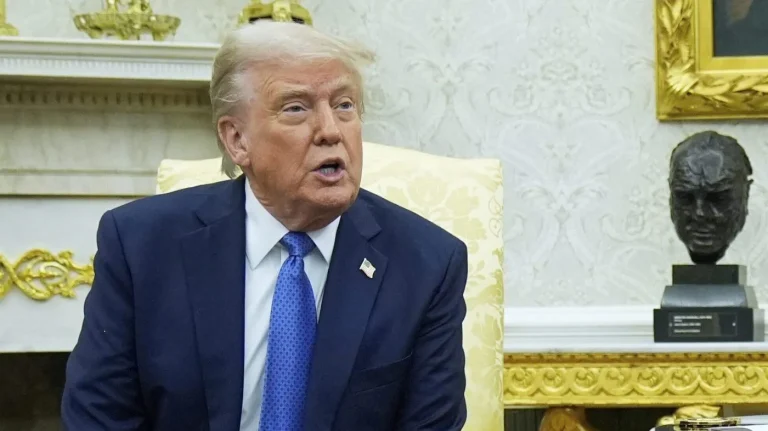🎧 Listen to This Article
In a candid interview with Time magazine, President Donald Trump signaled a shift in his tax rhetoric, acknowledging the appeal of raising taxes on the wealthy to fund a range of campaign promises. The comments, made in the context of his first 100 days in office, are a rare departure from the tax-cut-centric agenda that defined his earlier political career. Yet, even as he expressed fondness for the idea, Trump also pointed out the inherent political risks, particularly the possibility of a backlash from both voters and members of his party. This development underscores the tension between tax policy ambition and the realities of political acceptability and the broader implications for tax reform within the GOP.
Trump’s endorsement of a higher tax on millionaires came as part of a broader conversation about financing his policy proposals. The millionaire tax would, in theory, help offset the costs of extending tax cuts and funding new initiatives such as eliminating taxes on tipped wages, overtime wages, and Social Security benefits. However, Trump acknowledged that, while he wouldn’t mind paying more taxes, the concept of a millionaire tax hike might not resonate with the American public. He added that such a proposal could be politically damaging, with opponents possibly weaponizing it as evidence of a tax increase on the wealthy.
The GOP has flirted with reintroducing a top marginal tax rate of 40 percent on income above $1 million. This proposal represents a break from traditional Republican orthodoxy, where tax cuts for the wealthy have been a cornerstone. The move would effectively reverse the tax cuts from 2017, which lowered the top marginal rate from 39.6 percent to 37 percent. It’s also in line with the expiration of the 2017 cuts at the end of the year unless the GOP successfully extends them.
The millionaire tax proposal raises several important questions: Will the public support a tax hike on the wealthy to fund middle-class benefits, or will it be seen as an unfair burden? Trump’s warning that a tax increase could be “disruptive” due to the mobility of wealthy individuals is not unfounded. With global transportation and communication easier than ever, high earners have the means to relocate to more tax-friendly jurisdictions. The potential for capital flight could undermine the policy’s effectiveness, limiting its revenue-generating capacity.
Moreover, the Republican Party faces internal division on the issue. Some GOP lawmakers have expressed interest in the idea, while others remain firmly against it. The party’s core economic philosophy has long centered on tax cuts and low rates for high earners. Any shift from this stance could spark intense infighting and complicate the GOP’s legislative agenda.
For policymakers, the key question is whether the millionaire tax proposal will gain traction within the GOP. If it does, the party will have to carefully navigate the political landscape, balancing the desires of centrist Republicans who support tax hikes with the traditional conservative base that is adamantly opposed.
The challenge for business leaders and tax professionals will be assessing potential tax hikes’ impact on investment and competitiveness. A higher tax rate on the wealthy could lead to changes in corporate behavior, with an increased focus on tax avoidance strategies or relocation of assets abroad.
The next few months will be critical in determining the fate of Trump’s millionaire tax proposal. If the GOP moves forward with a plan to hike taxes on the wealthy, it will signal a significant shift in the party’s fiscal strategy. However, the political fallout — particularly in a polarized election year — could be severe. Companies, investors, and tax advisors should stay attuned to the developments in this debate, as it could signal broader shifts in tax policy across the U.S.
For further details, clarification, contributions, or any concerns regarding this article, please get in touch with us at editorial@tax.news. We value your feedback and are committed to providing accurate and timely information. Please note that our privacy policy will handle all inquiries.



